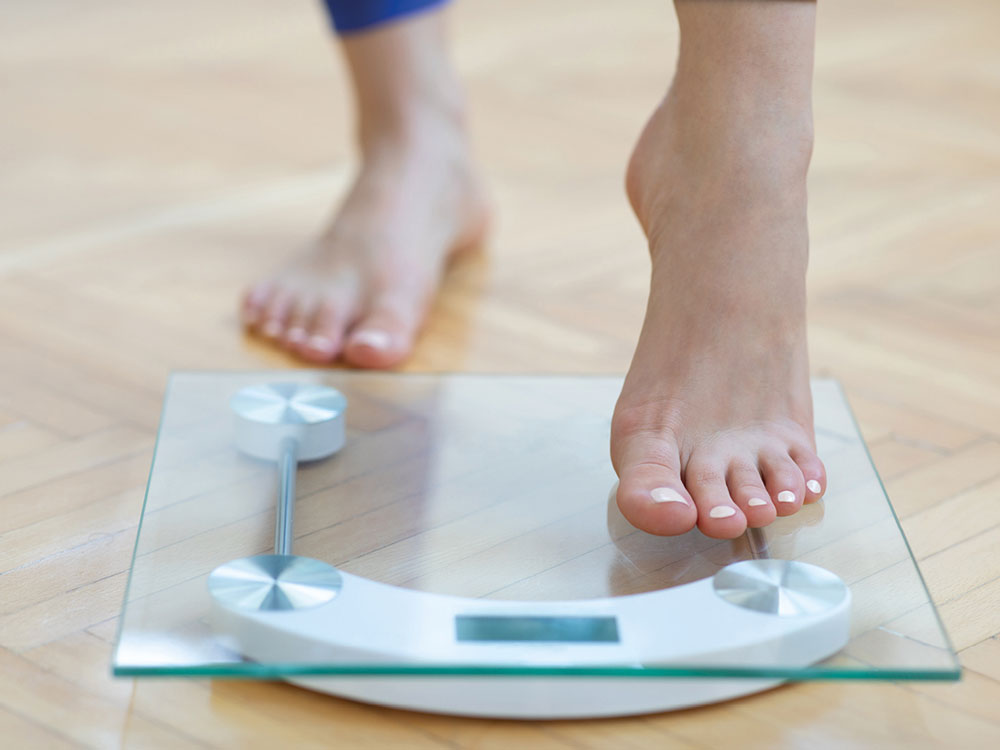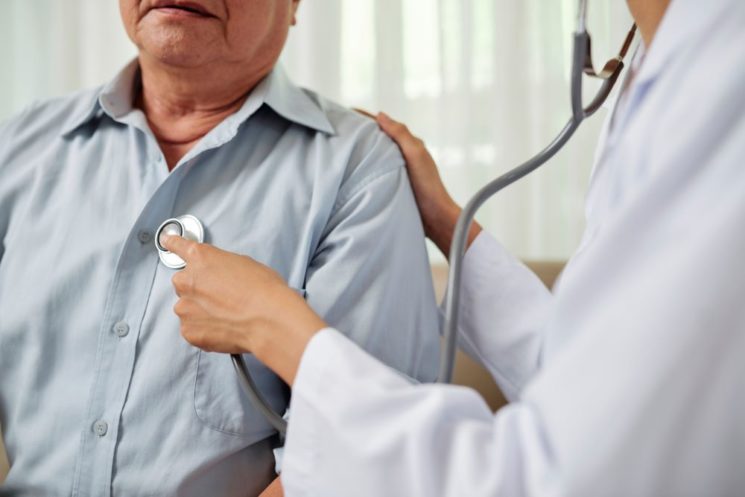
For many people experiencing obesity – particularly those who have struggled to lose weight through diet and exercise – bariatric surgery is an excellent option to kickstart weight loss and embrace long-term healthier habits.
Gastric bypass is a well-studied and highly effective type of weight loss surgery, which can help patients to lose up to 35% of their total body weight. Mr Ahmed Ahmed, Consultant GI and Bariatric Surgeon at Cromwell Hospital, explains more about this popular surgical weight loss option.
What is a gastric bypass?
Gastric bypass is a type of weight loss (bariatric) surgery that reduces the size of the stomach, making you feel full quicker. It is an option for people who have a BMI over 35 and would like to lose weight but have not seen results through diet changes or increased exercise.
During full gastric bypass surgery, staples are used to separate the upper portion of your stomach from the lower part, creating a small egg-sized pouch. The lower portion of the stomach remains attached to the upper part of the small intestine.
The small intestine is then divided, and the lower part is brought up to be reattached to the newly created pouch. Finally, the upper part of the small intestine (attached to the remaining stomach) is reattached to the part which has been brought up to the pouch – creating a ‘Y’ shape.
A full gastric bypass may also be called Roux-en-Y gastric bypass (RYGBP) – this is the name of the surgical technique used within the procedure.
What is a mini gastric bypass?
A mini gastric bypass (MGBP) is similar to a full gastric bypass but differs slightly in technique.
In a mini gastric bypass, a small pouch is created and connected further down the small intestine, bypassing around 2-3 metres of intestine in total. This type of bypass can be carried out more quickly, as there is only one new join (anastomosis) created whereas a full bypass creates two.
How does gastric bypass work?
Gastric bypass reduces the stomach to around the size of an egg, so that when you eat you quickly feel full. This is because the stomach can contain less food than it previously could, and because changes in gut hormone secretion give an earlier sensation of fullness.
What are the BMI requirements for gastric bypass surgery?
BMI requirements for gastric bypass surgery may vary between different providers.
At Cromwell Hospital, gastric bypass may be carried out for patients with:
- a BMI over 35
- a BMI of 30 or above and type 2 diabetes
- for Asian patients – a BMI of 27 or above and type 2 diabetes
However, being physically fit for surgery is not the only consideration – you must also be able and willing to commit to the long-term dietary and lifestyle changes required.
Gastric bypass side effects
Long-term side effects for gastric bypass surgery include dumping syndrome, malnutrition, bowel obstruction, gallstones, hernias, stomach perforations, ulcers, and vomiting. Many of these can be remedied through revision surgery.
Immediately following surgery, the side effects of gastric bypass may include infection, blood clots, bowel leakage, or narrowing of the new join. These risks increase for patients with pre-existing health conditions, such as heart disease or high blood pressure.
Gastric sleeve vs gastric bypass
A gastric sleeve, also known as sleeve gastrectomy, is another type of weight loss surgery that involves reducing stomach size. Like gastric bypass, patients can expect to lose up to 35% of their total body weight and see an improvement in type 2 diabetes and high blood pressure.
There are several benefits to a gastric sleeve. This type of surgery is carried out laparoscopically (keyhole surgery), meaning it is less invasive and patients often recover faster. A gastric sleeve also comes with a reduced risk of developing side effects like dumping syndrome. However, weight loss is usually slower with a gastric sleeve than with gastric bypass.
Because gastric sleeve surgery can be carried out in a shorter length of time, it may be recommended for patients with a very high BMI who are at risk during longer operations. If required, the gastric sleeve can then be converted into a gastric bypass once the patient has lost weight.
Preparing for gastric bypass surgery
Preparation for gastric bypass surgery begins at least several weeks in advance of your operation date.
You will receive a pre-operative diet plan, which you will be required to follow prior to your surgery – this is to help you lose a small amount of weight prior to your bypass. It is also recommended that you walk for 30 minutes per day, as this may help reduce the risk of post-operative complications.
People who smoke will be advised to quit at least six weeks prior to surgery, as smoking can raise your risk of post-operative complications.
On the day of your surgery, you will not be able to eat for at least six hours, and not drink for at least two hours, prior to going into theatres.
During gastric bypass surgery
Gastric bypass surgery is carried out under general anaesthetic, which means you’ll be asleep. It usually takes around one hour to complete.
Gastric bypass is usually carried out laparoscopically, using small surgical instruments, guided by a telescope with a video camera. The instruments are inserted through a series of small cuts in your abdomen.
Your surgeon will use surgical staples to separate the top section of your stomach from the lower part, creating a pouch. They will then cut an opening in the pouch and connect it to a section of the small intestine.
Your surgeon will close the cuts in your abdomen using dissolvable stitches or small metal clips and place a dressing over the area.
After gastric bypass surgery
Following surgery, you will awaken in the recovery room before being taken back to your own private room on the ward. It is normal to feel sore or in pain, and our nurses can give you medication to help you feel more comfortable.
Four hours after surgery, you will be encouraged to get out of bed and move around – this helps prevent blood clots from forming. You will need to walk around for 10 minutes roughly every two hours.
On the day of surgery, you will be allowed to sip on liquids such as water, tea, coffee, and soups.
You will be discharged home one to two days after surgery. On your return home, you will be given a diet plan which you will need to follow closely. If you have any questions or need advice, a member of the team will always be available via phone call.
How long does it take to recover from gastric bypass surgery?
You should be able to return to work one week after surgery, provided your job is desk-based and not strenuous. It is important to keep active and you will be encouraged to do 30 minutes of moderate daily exercise, such as walking.
For up to two weeks post-surgery, you will be on a liquid diet. Gradually, you will be able to transition to a pureed diet after two to four weeks, soft foods after four to eight weeks, and regular food after eight weeks.
You will continue to have follow-up appointments with the bariatric team, where blood will be taken to ensure you are not malnourished.
What can you never eat again after gastric bypass?
Once you have fully recovered from surgery, you should not be limited in terms of what food you can consume. However, some patients find that they can no longer tolerate foods that are high in fat, sugar, and starch.
An important part of the gastric bypass journey is adopting new, healthier dietary and lifestyle choices. Immediately after surgery, you will be limited to a liquid diet and will slowly transition back to solid food over the course of eight weeks.
You will be required to take a nutritional supplement for the rest of your life, to prevent malnutrition. This is because bariatric surgery can affect the way your body absorbs nutrients from food.
What is the average weight loss after gastric bypass surgery?
Most patients can expect to lose between 30% to 35% of their total body weight during treatment.
Weight loss from gastric bypass surgery also comes with other health benefits, such as reversal of type 2 diabetes and an improvement in high blood pressure. Patients with gastro-oesophageal reflux disease (GORD) may also see a decrease in symptoms.
What is dumping after gastric bypass?
Dumping syndrome, or rapid gastric emptying, is when food moves too quickly from the stomach to the first part of the small intestine (duodenum) and cannot be properly digested. In rare cases, it occurs as a side effect of bariatric surgery.
There are two types of dumping syndrome: early and late. Early dumping occurs during or right after eating and is likely to be triggered by the consumption of sugary, fatty, or liquid foods. This type of dumping can cause stomach pain, bloating, nausea, and diarrhea.
Late dumping occurs two to three hours after eating. It is usually caused by the consumption of either sugary foods or large amounts of simple carbohydrates, which trigger a hypoglycemic response in the body. This can cause physical symptoms such as dizziness, heart palpitations, and excessive sweating, as well as emotional responses such as confusion and irritability.
Dumping syndrome can often be resolved by reducing foods that trigger the condition, such as those high in sugar and fat, and eating appropriate portion sizes.
Is gastric bypass reversible?
It is possible to reverse gastric bypass surgery. However, reversals are usually only considered for patients who have experienced severe side effects from their original procedure, such as chronic nausea and vomiting, chronic abdominal pain, or dumping syndrome. This is because the reversal procedure is complicated and carries some risks.
If your gastric bypass is reversed, you may regain weight. Your consultant can recommend an alternative weight loss procedure, such as a gastric sleeve, if you feel you need continued support to lose weight.
There is also the option of revision surgery. Because this is a very complex procedure, it is important to choose a highly experienced bariatric surgeon. Mr Ahmed Ahmed, who leads the bariatric surgery service at Cromwell Hospital, has carried out hundreds of revisional operations both privately and within the NHS.
How much is gastric bypass surgery?
Cromwell Hospital provides a variety of ways to pay, including all-inclusive, fixed price packages. For more information about pricing, please fill out an enquiry form or get in touch with our dedicated self-pay team at +44 (0)20 7244 4886.
Occasionally, bariatric surgery is covered by private health insurance – you may wish to confirm with your provider whether this is covered under your policy.
Why is it better to have surgery in the UK rather than abroad?
Many people are tempted to go for surgery abroad, often due to reduced procedure prices.
It is important to remember that bariatric procedures are considered major surgery; they can be complex and occasionally incur post-operative complications. It is much safer to have surgery at home in the UK, where your bariatric team are nearby and ready to support with any issues that arise.
Because the British healthcare system is strictly regulated, you can also be assured that any providers of bariatric surgery in the UK are reputable and experienced – something which cannot be guaranteed when having surgery abroad.
About the consultant
Mr Ahmed Ahmed is one of the UK’s leading bariatric surgeons and co-founder of The London Weight Clinic. He is an expert in minimally invasive (laparoscopic) surgery, and, in addition to bariatric procedures, provides a range of gastrointestinal surgeries including gallbladder surgery, anti-reflux surgery, and hernia repair. Mr Ahmed also offers a range of non-surgical weight loss options, including gastric balloons and weight loss injections.


